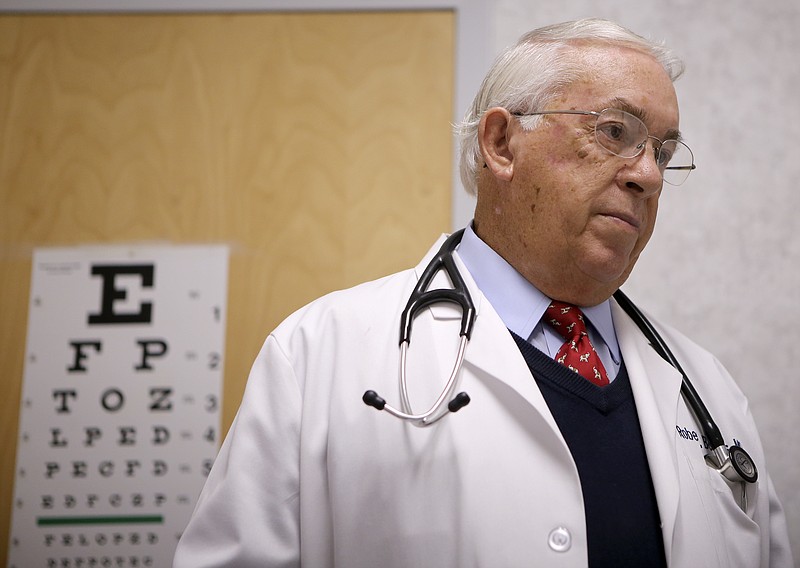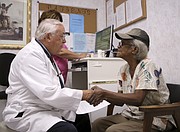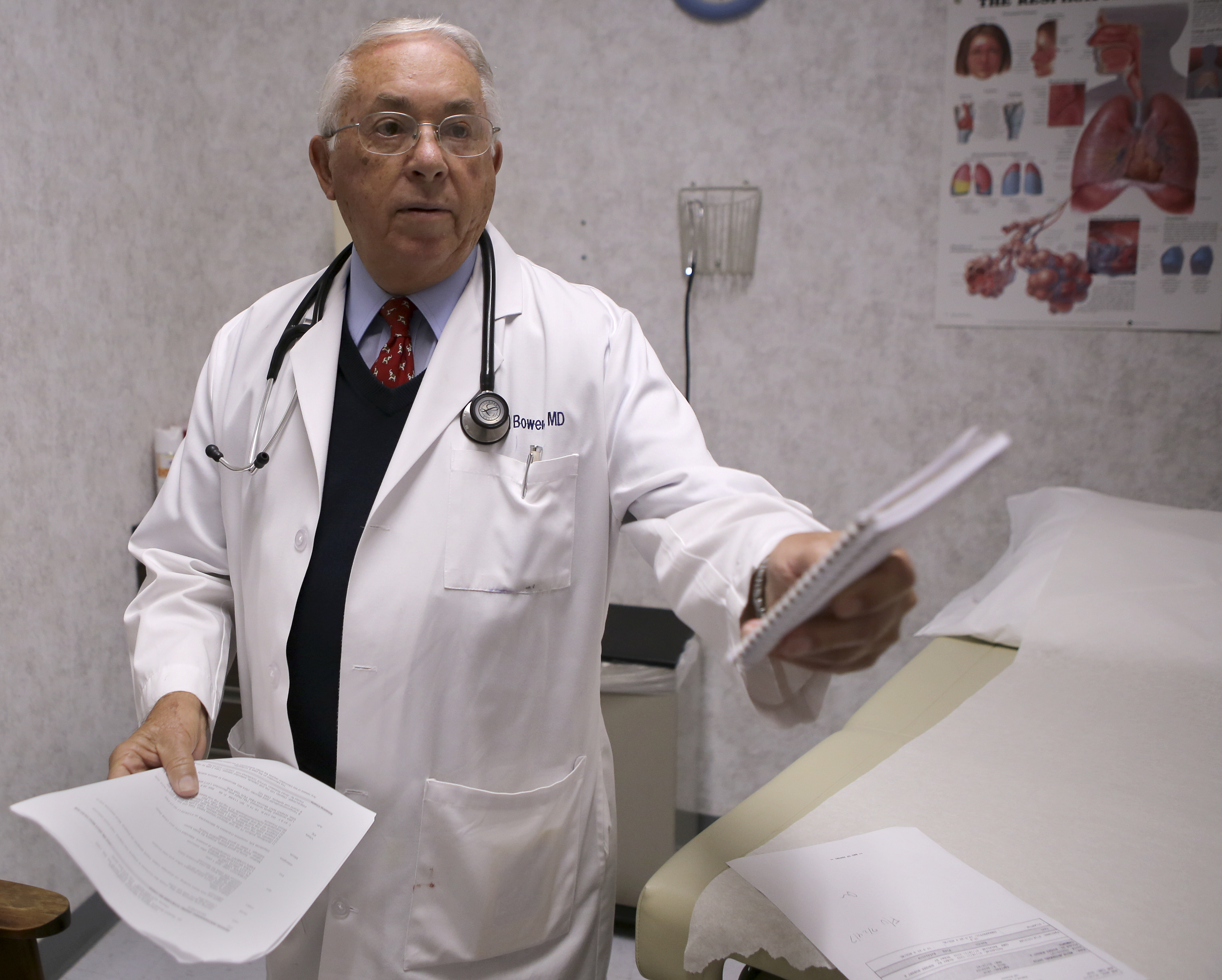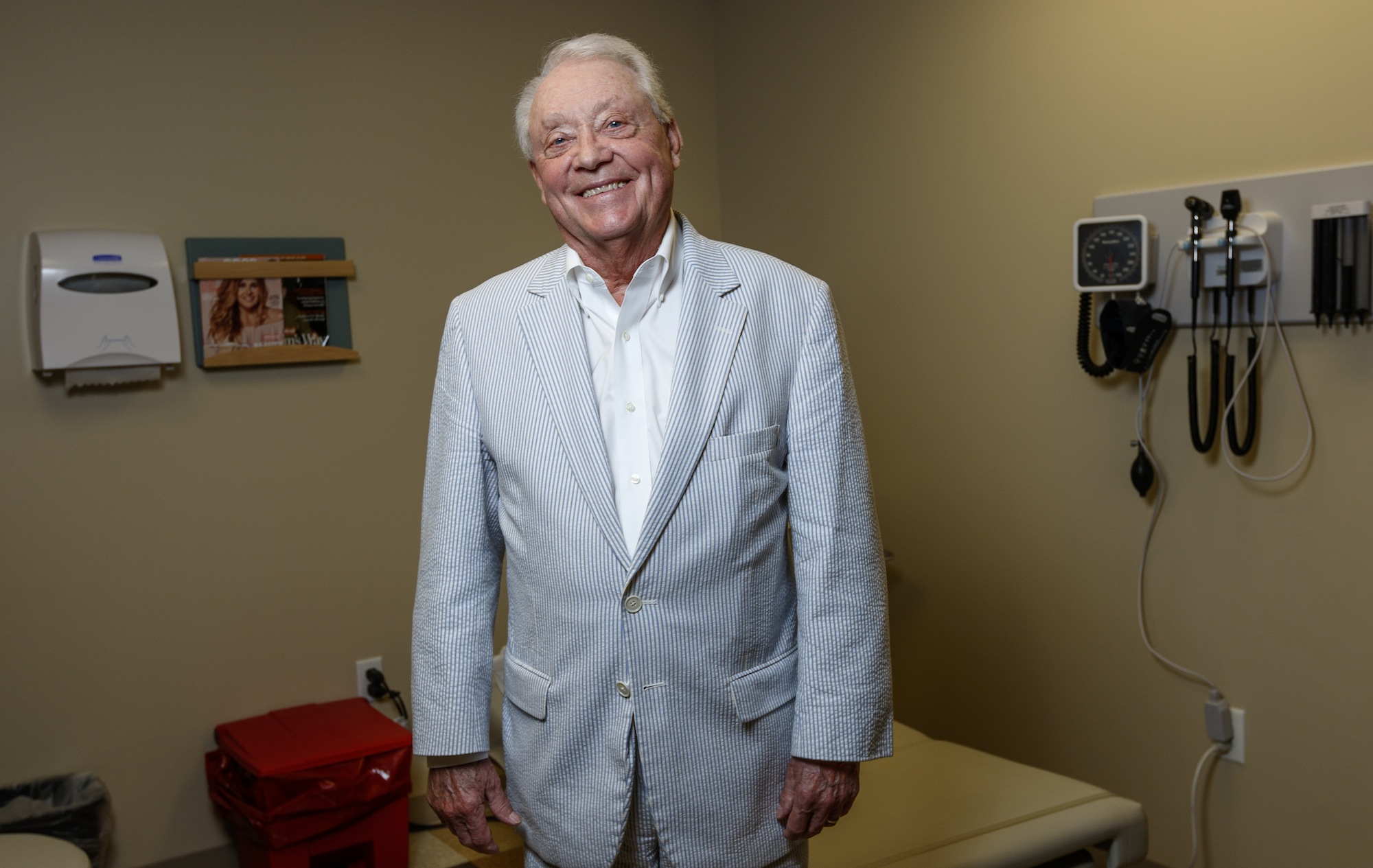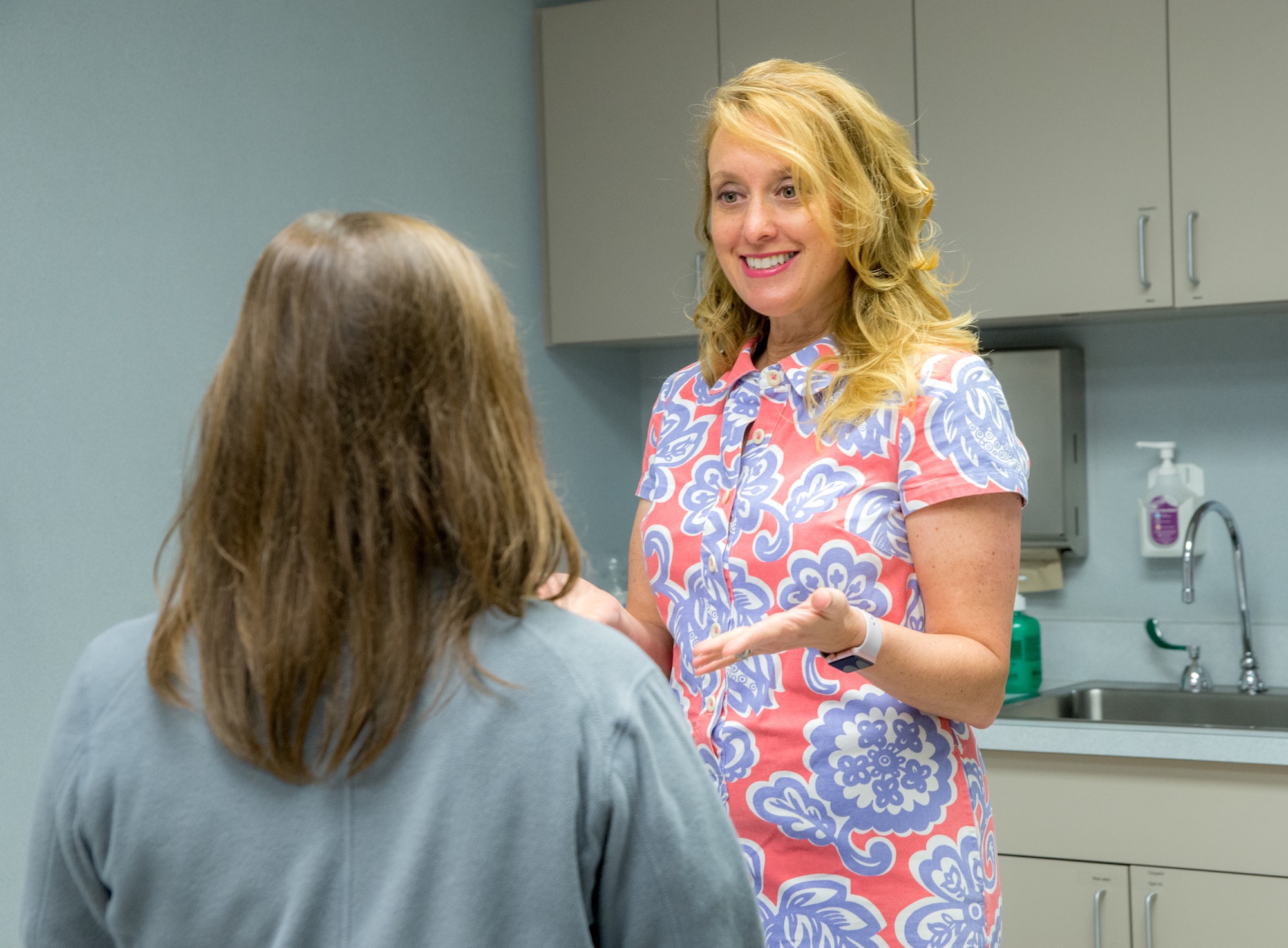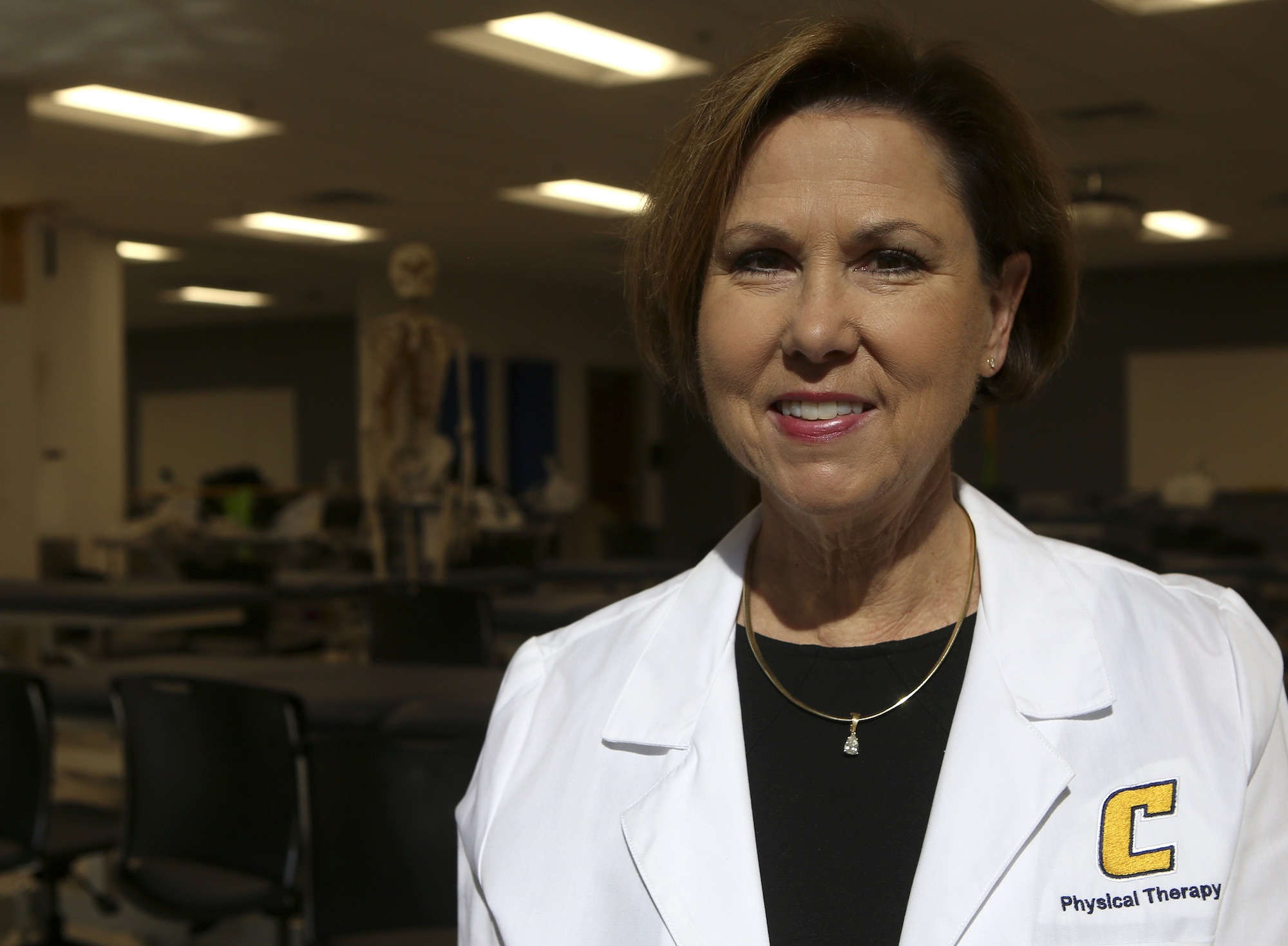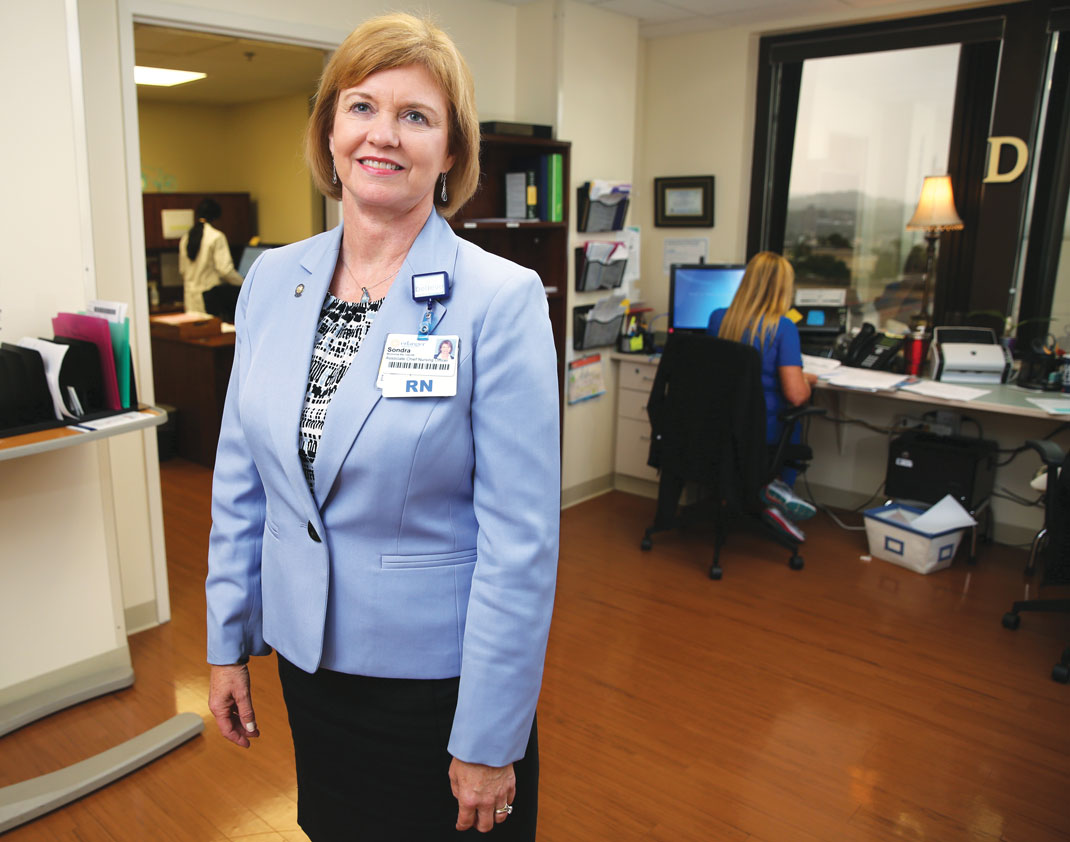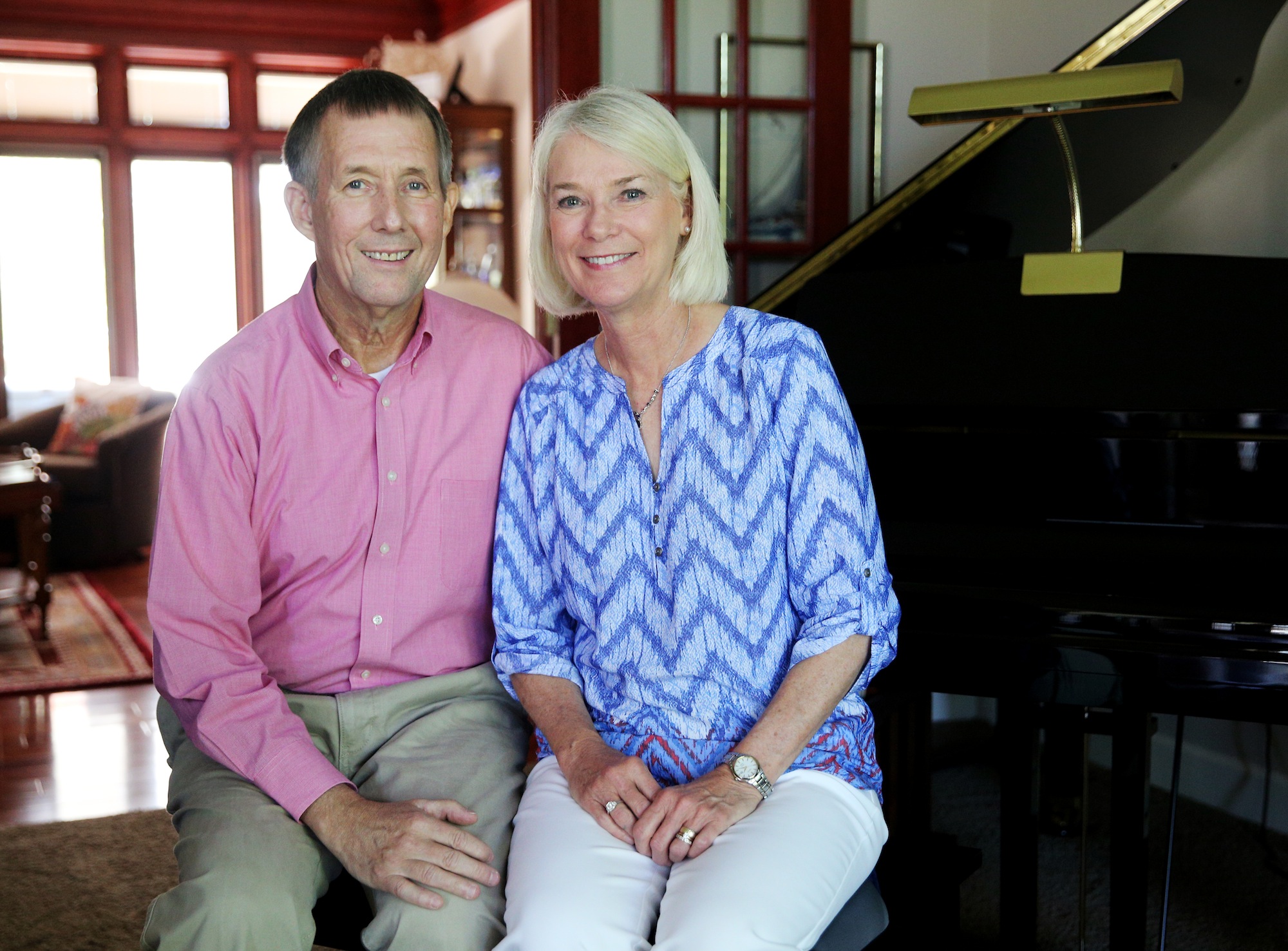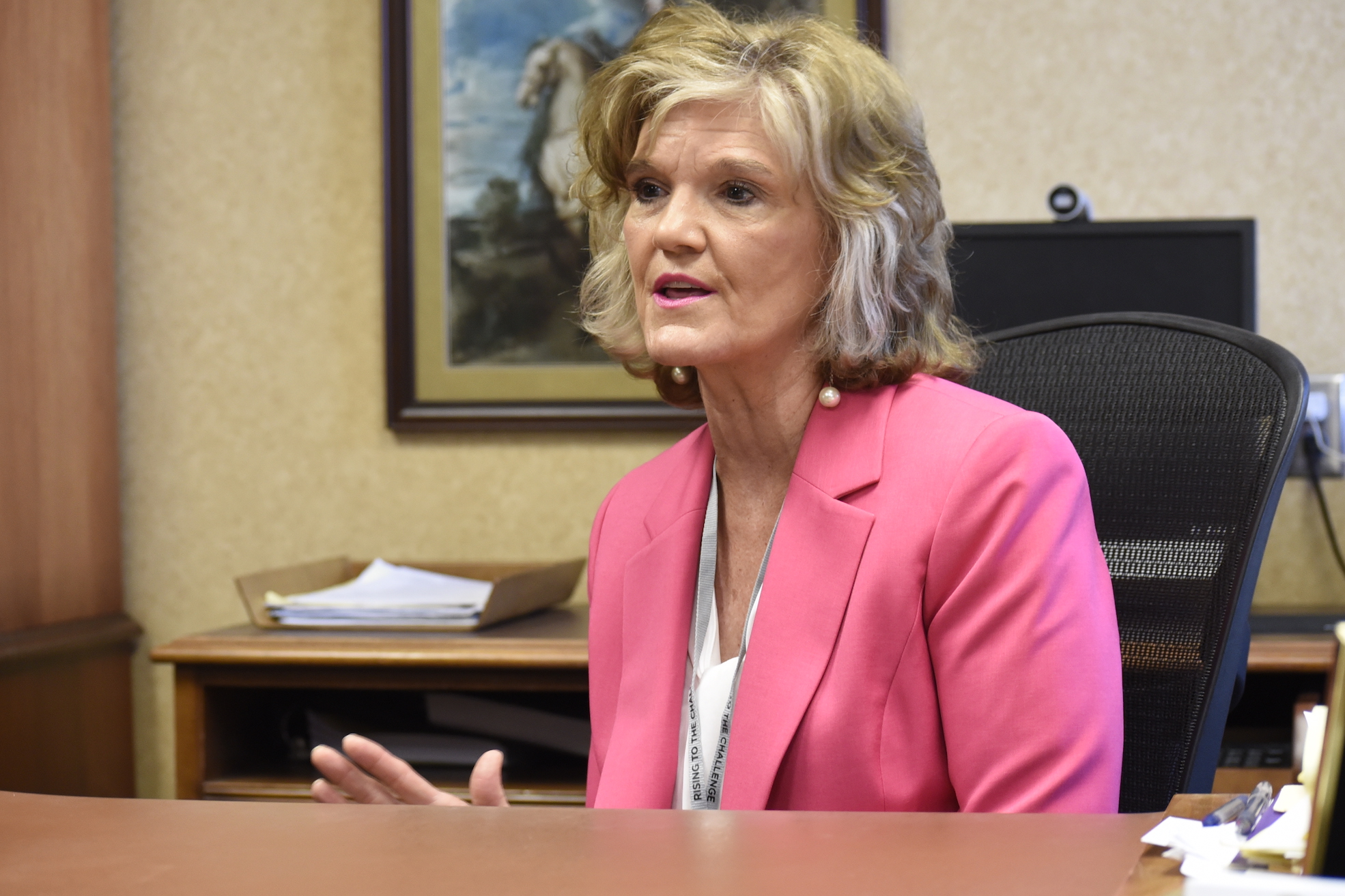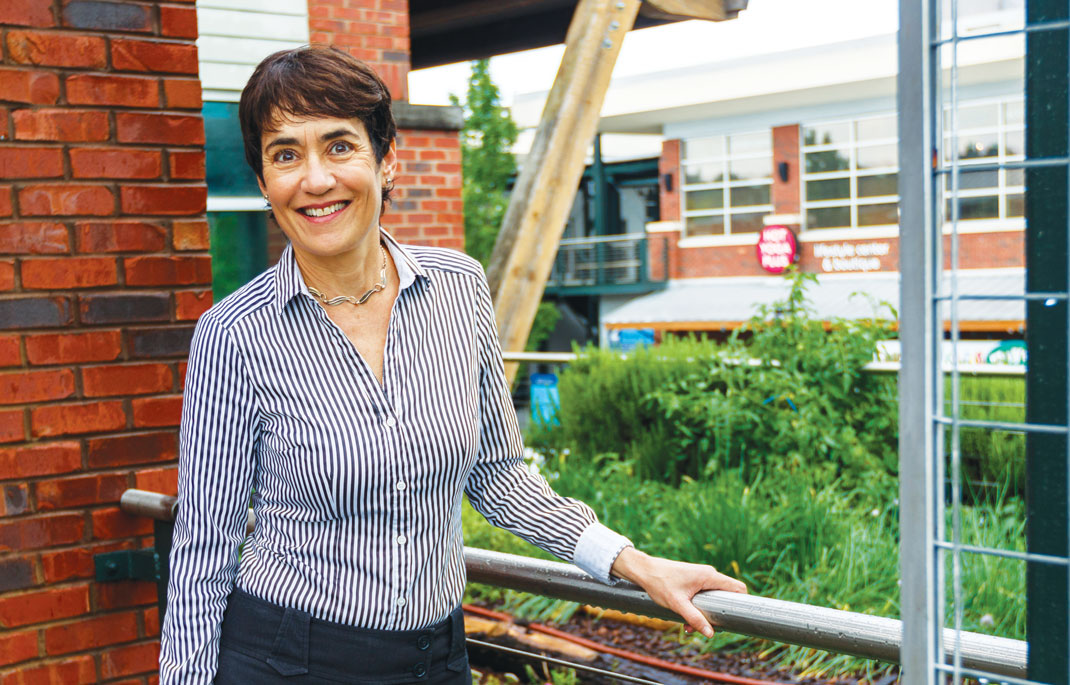Champions of Health Care award winners
Lifetime achievement: Dr. Robert BowersCommunity physician: Dr. Jim DavisAcademic physician: Dr. Lisa SmithNon-physican practitioner: Dr. Debbie IngramAdministrative excellence: Sondra McGinnisVolunteers: Rich and Barbara KramerCommunity outreach: A Step AheadInnovation: Becky Barnes
America's complex and technologically driven medical system is as sophisticated, complex and expensive as any in the world. But within that vast system are those who still put the "care" in health care and who we recognize as the winners of this year's Champions of Health Care awards.
Edge magazine, in partnership with the Chattanooga-Hamilton County Medical Society and BlueCross BlueShield of Tennessee, received more than 150 nominations from the public about health care providers, administrators and volunteers who have made health care better in Chattanooga. From among those nominations, a panel of judges comprised of top leaders from the medical society and each of Chattanooga's three major hospital systems - Erlanger Health System, CHI Memorial Hospital, Parkridge Health System -picked the winners.
The Champions of Health Care award winners recognize those who have tackled major community health problems, starting programs to tackle obesity and smoking, adding physical therapy training in Chattanooga, and bringing needed medical services to those without health insurance. Others are recognized for new approaches, strong leadership and simple acts of kindness during their lifetimes of achievement and service.
This year's Champions of Health Care will be honored at a luncheon at The Chattanoogan on Sept. 26.
Lifetime achievement: Dr. Robert Bowers
Interest in health, others leads to Volunteers in Medicine service
Dr. Robert Bowers still remembers the wonder he felt the first time he watched a physician at work.
Bowers was about six years old, and his father had contracted tuberculosis. Bowers watched the doctor take an X-ray of his father's chest, examine it, then translate the mysterious image into an explanation of the disease in the father's lungs.
"That doctor was able to go into a room, and read that thing, and tell my father what he had inside of him," says Bowers. "He could see it, and help fix it. That just fascinated me."
Bowers' father recovered from the illness, but the interaction with that physician stuck with Bowers over the years. The two-fold ability to understand problems others couldn't see, and to take action to help fix such problems: this seemed like a powerful responsibility. And that deep sense of duty remains at the heart of his work as medical director for Volunteers in Medicine Chattanooga, Inc., a faith-based nonprofit that provides primary care to people in the region without access to health insurance.
"You see another human being's need, and you can help meet that need," says Bowers, now 86. "You do something about it."
After a long career as an ear, nose and throat physician and surgeon, Bowers has spent his "retirement" volunteering as VIM's medical director since the program's origins in 2004. The clinic - which is run on private donations and the work of 15 volunteer physicians including Bowers - logs about 5,000 patient visits a year.
As founder and past president of the Medical Foundation of Chattanooga, Bowers helped start Project Access - another local program that connects the uninsured to specialty care.
- Kate Harrison Belz
Community Physician: Dr. Jim Davis
Davis' second career builds Memorial health clinics to help low-income, uninsured
Dr. JimDavis, 82, a certified family practice physician, retired last year after more than half a century in his profession.
His farewell came nearly 20 years after he first planned to retire. Davis had a second act as medical director of Memorial Westside Health Center and Memorial North Shore Health Center (now CHI Memorial Community Health), which offer services to those who likely couldn't afford them otherwise.
What started as a temporary role as medical director of the health clinic won him over.
"Working with these patients that either didn't have insurance or didn't have financial security – patients often had more than one problem and hadn't had very good medical care before then," he said.
Nurse practitioners see most of the patients at the clinics. Davis's job was to be available if they needed assistance.
Davis was the kind of person who made a point of getting to know the people around him and former colleagues describe him as a humanitarian, in addition to a skilled physician
An inveterate caretaker, Davis was less enthralled with the business side of health care. Yet he proved effective at it precisely because he was not a salesperson, says Jennifer Nicely, president of CHI Memorial Foundation.
Davis played a critical role in raising $350,000 several years ago to relocate CHI Memorial's community facility to Hixson from North Shore.
- Mitra Malek
Academic physician: Dr. Lisa Smith
Pediatric surgeon leads in chest wall reconstruction, emergency response
As one of only four pediatric surgeons in Chattanooga, she has helped develop a new chest wall reconstruction program for adolescents with pectus excavatum and pectus carinatum.
Smith spends a good chunk of her time developing "Pectacular!," a chest wall reconstruction program for adolescents with pectus excavatum and pectus carinatum, two chest wall deformities that can cause heart and lung problems, as well as sabotage self confidence.
"Those deformities are really a problem for kids," said Smith, a partner at University Surgical Associates. "When we rebuild them when they're adolescents, it not only improves their body self image, it takes care of their underlying cardiac and pulmonary problems - I know we're doing the right surgery for these kids, and it's not just cosmetic."
The complex surgery is an endeavour that requires months of preparation from the patient, family and a multidisciplinary team - directed by Smith - comprised of physicians, nurses, therapists and a support network. Smith performs between 15 and 20 chest wall reconstructions per year, but she's seen more than 800 children for the deformity, which can sometimes be corrected without surgery.
"It's a process that takes place between five to six years, so I get to know the patients and their families really well," Smith said.
While Smith is Chattanooga's pioneer in chest wall reconstruction, she's also known across town for her poise and leadership in the operating room.
Smith's demeanor shone on Nov. 21, 2016, the day of the Woodmore Bus Crash that killed six children and sent 31 others to hospitals. She also was the on-call surgeon during the 2011 tornado outbreak in the region.
"That's what we do here, with this being a major trauma center, and especially with the time it hit during the day, the hospital was well staffed and full of knowledgable people," she said, emphasizing that Chattanooga is a close-knit community where first responders and medical professionals work together.
- Elizabeth Fite
Non-physican practitioner: Dr. Debbie Ingram
Ingram promotes physical therapy and education at UTC
Debbie Ingram quickly rose through the ranks at Erlanger Medical Center in the 1980s to become director of rehabilitation, managing five departments.
In 1990, when Dr. Ingram and her husband, David, adopted a baby girl and she wanted more flexibility in her career, Ingram accepted an offer to join the University of Tennessee at Chattanooga to help launch what at the time was only the second PT program in Tennessee.
Over the past 27 years, Ingram has personally taught more than 600 physical therapists and is now working with more than 90 doctoral students. While developing the PT program and teaching at UTC, she also earned a doctorate at the University of Tennessee in Knoxville and has served as chair of the Tennessee Board of Occupational and Physical Therapy Examiners, co-chair of the American Physical Therapy Association's Clinical Education Special Interest Group and a board member for the Tennessee Physical Therapy Association and the Federation of State Boards of Physical Therapy.
"I am not one just to sit on the fence - and neither are the others in this department," she says.
Ingram's passion for volunteerism extends beyond physical therapy. In 2007 and 2008, she served as president of the University of Tennessee National Alumni Association, representing the 335,000 graduates of all campuses. It was the only time in history that the president was a faculty member.
"Education changes people's lives and it was a real thrill to talk about the University of Tennessee and meet with alumni all over the country," she said.
- Dave Flessner
Administrative excellence: Sondra McGinnis
McGinnis succeeds through service and efficiency
Sondra McGinnis, who was recently named chief nursing officer of Erlanger Medical Group, is constantly in search of better outcomes for patients while also trying to improve efficiency for her employer.
It has proven to be a potent, one-two combination for McGinnis, who now has management responsibilities for almost 500 employees and holds the prestigious title of Fellow of the American College of Healthcare Executives.
McGinnis has been a hospital nurse and manager for more than 20 years and the recipient of the Living Legacy Award from her alma mater, the Ida V. Moffett School of Nursing at Samford University in Alabama.
In the early 1990s, working as a case manager at Memorial Hospital, McGinnis and her peers were challenged by then-CEO Clark Taylor to each take a diagnosis and try to improve outcomes. McGinnis chose bowel surgery and was able to get a group of surgeons to agree to a common pathway to care that improved patient outcomes while creating more cost efficiency, the two gold standards of health-care management.
After earning masters degrees in both health and business administration from Georgia State University, while also juggling responsibilities as a nurse and mother of four children, she took a career detour in the 1990s to open the Chattanooga Therapeutic Riding Center on her family farm in East Brainerd.
Forming the non-profit Riding Center provided practice in skill sets that would later come in handy when McGinnis returned full time to health care management. She learned to develop a business plan, set goals, direct training and work with a board of directors, she says.
McGinnis served as director of Chattanooga Therapeutic Riding Center until 2004, when it merged with another organization to form the Tri-State Therapeutic Riding Center in McDonald, Tennessee.
Later, she got a chance to manage physicians offices and began a climb through the ranks of management that would eventually lead to her current post as chief nursing officer at Erlanger Medical Group.
"Most of the goals I've set for myself, I've been able to accomplish from staff RN to managing doctor's practices," she said.
- Mark Kennedy
Volunteers: Rich and Barbara Kramer
Kramers use business success to aid Memorial hospital with time and money
Rich and Barbara Kramer, who both grew up on Long Island in New York, came to Chattanooga more than three decades ago, starting and building Metro Boiler Tube Co., into a major equipment supplier before selling the business in 2006.
At the age of 50, the Kramers considered other business ventures but knew they wanted to stay in their adopted hometown and give back to the local community. They utimately found their passion helping others at CHI Memorial Hospital.
The Kramers have given more than $1.3 million in contributions and pledges for a variety of Memorial Hospital projects over the years and are regular volunteers, both as guides or greeters and as board members for the hospital auxiliary and foundation.
"I think I have given money to about every place at Memorial - I want to make sure I have my bases covered in case I need it," Rich jokes.
He likens the volunteer work to "being in business, working and helping people.
Although neither of the Kramers have any medical background or personal medical problems, they said they recognize the value of helping others and enjoy the chance to meet and aid others, especially when they may need such help.
"If you can help people, I really believe you should," he says. "I know that one person can make a difference. We were very, very lucky and I always try to remember that."
The Kramers get up early every Thursday and Friday to volunteer at the hospital's North Tower and surgical suites, helping patients and families find their rooms and assignments in the sprawling hospital campus. They also have donated and helped to raise money from others to aid in Memorial's ongoing growth.
"They are wonderful advocates for our patients and incredibly helpful in almost every way," said CHI Memorial Hospital President Larry Schumacher.
- Dave Flessner
Health department head tackles obesity, smoking and other public health challenges with innovative approaches
From cutting infant mortality and youth obesity to fighting the area's culture of smoking and aiding in emergency preparedness, Becky Barnes uses her job to make a difference.
"It's very rewarding to do one-on-one work," said Barnes, the 62-year-old administrator of health services for the Chattanooga-Hamilton County Health Department. "But [even more rewarding] is being able to move to a different level and affect the lives of a large group of people, the population of our community."
Barnes joined the Hamilton County Department of Health in 1980 after working as a nurse, and has served as its administrator for the past 17 years.
As head of the Hamilton County Health Department, she oversees 300 people and a $22 million budget.
But she says she is most proud of the individual health gains made over the years, lowering the county's infant mortality and youth smoking and the ongoing efforts to attack obesity through the Step One initiative.
- Mike Pare
Community outreach: A Step Ahead
A Step Ahead looks for long-term fix to unwanted pregnancies
Talking about sex may be taboo for many, but not to Rachel Schulson, the executive director of A Step Ahead who brought the birth control campaign to Chattanooga from Memphis.
With one of every two pregnancies still unwanted in Hamilton County, Schulson is convinced people need to talk about and take action about the consequences of sex and birth control.
"It's not something we can't afford to talk about," she said.
Schulson likes to think of herself as a pragmatist who would rather find common ground to solve a problem than argue over possible solutions. When she started A Step Ahead Chattanooga three years ago to help women avoid unintended pregnancies, Schulson tried to side step the heated fights over abortion by focusing instead on something much less controversial: long-term reversible birth control.
A Step Ahead only helps women purchase long-term contraceptives and not condoms, the pill or the "morning after" pill. The program emphasizes what are called LARCs, or Long-Acting Reversible Contraceptives. The newer form of LARCs are implantables, small tubes that are inserted under the skin and slowly release a contraceptive chemical.
Woman who have health insurance are generally already covered for LARCs, although many of them aren't aware of that, Schulson says. TennCare, Tennessee's Medicaid program, also covers LARCs.
But if women have no health insurance, A Step Ahead will put them in touch with one of the 13 local medical clinics that provide the contraceptives, cover the cost, and even help with transportation.
A Step Ahead, which operates in 11 counties in the Chattanooga region, recently celebrated serving its 1,000th client and Schulson said she is pleased with the positive reception the program has received.
"There's nobody that's not touched by this," Schulson said.
- Steve Johnson
Join the celebration
The Champions of Health Care program recognizes excellence, promotes innovation and educates the community about best practices to enhance the value and quality of health care in the Chattanooga area.
To help celebrate the health care workers making a difference in our community, you may purchase tickets for the 2nd annual Champions of Health Care awards luncheon for Thursday Sept. 21 at The Chattanoogan.
